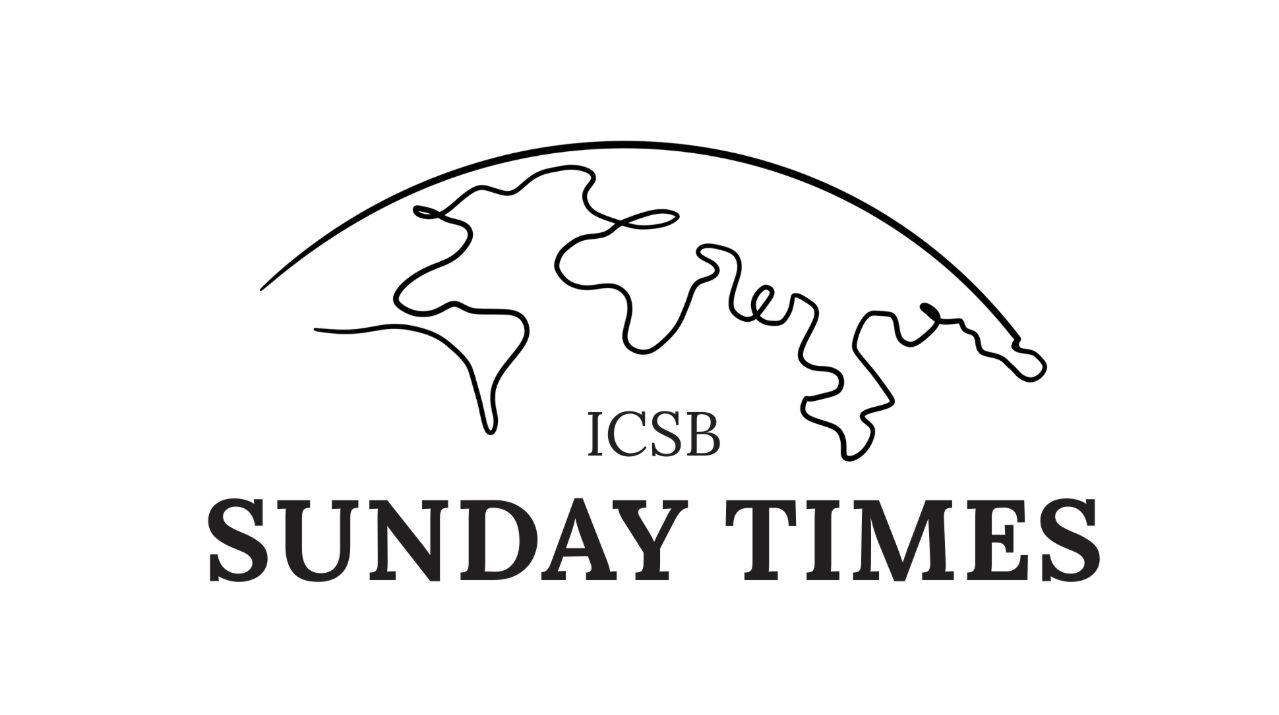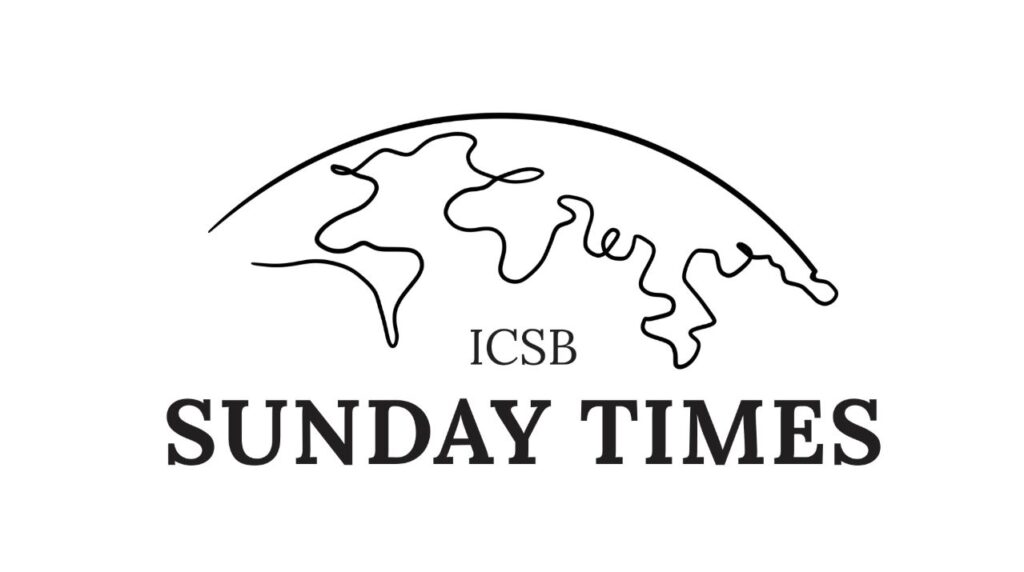|
|
|
|
ICSB Sunday Times Editor’s note:
Pour yourself a strong coffee, this week’s ICSB Sunday Times is packed with powerful insights. Skye Blanks leads with a call to bridge the FinTech gap, showing how MSMEs can access smarter, seamless finance through AI and embedded tools. The Harmonious Entrepreneurship Society challenges us to balance profit with purpose, while new research highlights the importance of resilience, smart risk-taking, and how language influences entrepreneurial alertness. We debut ICSB’s brand-new AI Certificate—Master the ABC of AI for Business Success—a three-session program turning AI into a practical tool for MSMEs worldwide. Barbara Maidment shares small business innovation lessons from Australia, and I revive “Permanent White Water” as today’s defining metaphor. We wrap with a forward-looking book on the future of business schools and a reflection on ICSB’s 70 years of global impact.
— Dr. Ayman ElTarabishy
|
|
|
|
|
|
|
|
|
Bridging the FinTech Gap:
10 Critical Needs MSMEs Require for Financial Inclusion
|
|
|
MSMEs consistently struggle with traditional credit evaluation systems that fail to account for their unique circumstances. FinTech solutions need to develop alternative risk assessment models that can evaluate student entrepreneurs, immigrant-owned businesses, and other underserved groups who lack traditional credit histories. Machine learning and AI tools should be leveraged to create more inclusive lending frameworks that look beyond conventional metrics. Rather than forcing MSMEs to juggle multiple platforms, the future of FinTech lies in embedded finance – integrating financial services directly into the tools businesses already use. Whether it’s payment processing in e-commerce platforms, invoice financing in accounting software, or insurance products in supply chain management systems, MSMEs need seamless financial integration.
|
|
|
By Skye Blanks, COO, ICSB
|
|
|
|
|
|
|
|
|
Editor’s Pick
Harmonious Entrepreneurship Society
|
|
|
|
|
|
|
|
|
|
|
|
|
|
|
For centuries, entrepreneurship has been celebrated as a driving force behind the creation of wealth and economic development. Yet beneath this success story lies a troubling reality: the same entrepreneurial spirit that builds fortunes has also contributed to global inequality, environmental destruction, and the exploitation of vulnerable populations.
From the 17th-century East India Company’s devastating impact on Indonesia’s Banda Islands to today’s corporate practices that prioritize shareholder returns above all else, the business world has operated under a flawed assumption that maximizing profit justifies collateral damage to people and planet. But what if there’s another way?
|
|
|
|
|
|
|
|
|
CUTTING EDGE RESEARCH
Cross-level effects of entrepreneurial orientation and ambidexterity on the resilience of small business owners
|
|
|
New research reveals that small business owners who take smart risks bounce back faster from setbacks. But here’s the twist: trying to innovate while maximizing current profits actually burns owners out. The winning combo? Being quick to act on opportunities while getting the most from what you already have.
By: Nicole Gottschalck, Katrice Branner, Lisa Rolan &Franz Kellermanns
|
|
|
|
|
|
|
|
|
|
|
|
|
|
GLOBAL INSIGHTS
Seeing what others miss: A “timely” look at entrepreneurial alertness
|
|
|
The breakthrough finding: Entrepreneurs who speak languages that emphasize future events (like “I will meet clients tomorrow” vs “I meet clients tomorrow”) are naturally wired to spot more business opportunities. Their brains stay tuned into future possibilities where opportunities hide.
By: Jintong Tang, Shaji A. Khan, Wenping Ye & Jun Yang
|
|
|
|
|
|
|
|
|
|
|
|
|
|
INSIDE ICSB
Entrepreneurs Are the Conscience of Enterprise
|
|
|
Meet Barbara Maidment EdD, Director and Vice-chair, Practitioners and Business, Small Enterprise Association of Australia and New Zealand (SEAANZ)
Her recent article on small businesses that face mounting challenges, but innovative solutions and strategic support are emerging across the globe. This is part of the ICSB Signature Event in Sydney.
|
|
|
|
|
|
|
|
|
|
|
|
|
|
|
|
ICSB Latest Certificate:
Master the ABC of AI for Business Success
starting September 29, 2025
|
|
|
|
|
In today’s rapidly evolving business landscape, artificial intelligence isn’t just for tech giants anymore. Small and medium enterprises worldwide are leveraging AI tools to streamline operations, boost productivity, and compete on a global scale – often with teams smaller than ever imagined. Whether you’re a seasoned entrepreneur or just starting your business journey, this comprehensive 3-session program will guide you through the essential knowledge, practical skills, and strategic insights needed to harness AI’s power for your MSME. Join fellow business leaders as we demystify AI and transform it from an intimidating buzzword into your most significant competitive advantage.
|
|
|
|
|
|
|
|
|
|
|
|
|
|
|
|
|
|
|
Navigating Permanent White Water
The term, originally coined in the 1990s to describe the shift from predictable business cycles to relentless chaos, is being revived by ElTarabishy, President and CEO of the International Council for Small Business, as he argues that today’s turbulent environment makes Peter Vaill’s original metaphor not just relevant, but essential for survival.
“What we’re experiencing now makes the 1990s look like a gentle stream,” says ElTarabishy. “The white water has become a permanent tsunami.”
|
|
|
|
|
|
|
|
|
|
|
|
|
|
|
|
|
|
|
The Future of Business Schools: Purpose, Action, and Impact
Authors: Rico J. Baldegger, Ayman El Tarabishy, David B. Audretsch, Dafna Kariv,
Katia Passerini, and Wee-Liang Tan,
Are business schools on the wrong track? The book The Future of Business Schools discusses these issues in three critical areas: complexity, sustainability, and destiny. How do we prepare students for a new and complex world?
|
|
|
|
|
|
|
|
|
|
|
|
|
|
|
|
|
ICSB 70th Anniversary – From ICSB History Book
1.Early Catalyst for Careers
At the pre-COVID ICSB-supported IPAG conference in Paris, emerging academics such as Aleksandra Janeska-Illiev (Macedonia) and Veronica Scuotto (Italy/UK) were part of the event, reflecting ICSB’s role in bringing new voices into international discussions on entrepreneurship
2.Policy Innovation Leadership
ICSB has been deeply involved in shaping policy discourse around entrepreneurship ecosystems. Notably, Jonathan Potter (OECD) organized the first-ever policy symposium on ecosystems in 2013, which ICSB actively engaged with, paving the way for its later Awards for Policy Excellence that honor global thought leaders
3.Global Expansion Beyond North America
While many entrepreneurship networks remained regionally focused, ICSB distinguished itself early by actively hosting and supporting conferences outside of North America. This global reach was highlighted at the 2025 Academy of Management conference in Copenhagen, where ICSB was recognized for being “way ahead” in international engagement
|
|
|
|
We are devoted to the interests and advancement of small business globally
|
|
|
|
|
|
|
|
|
|
|
|
|
|
|
|
|
|
|
|
|

